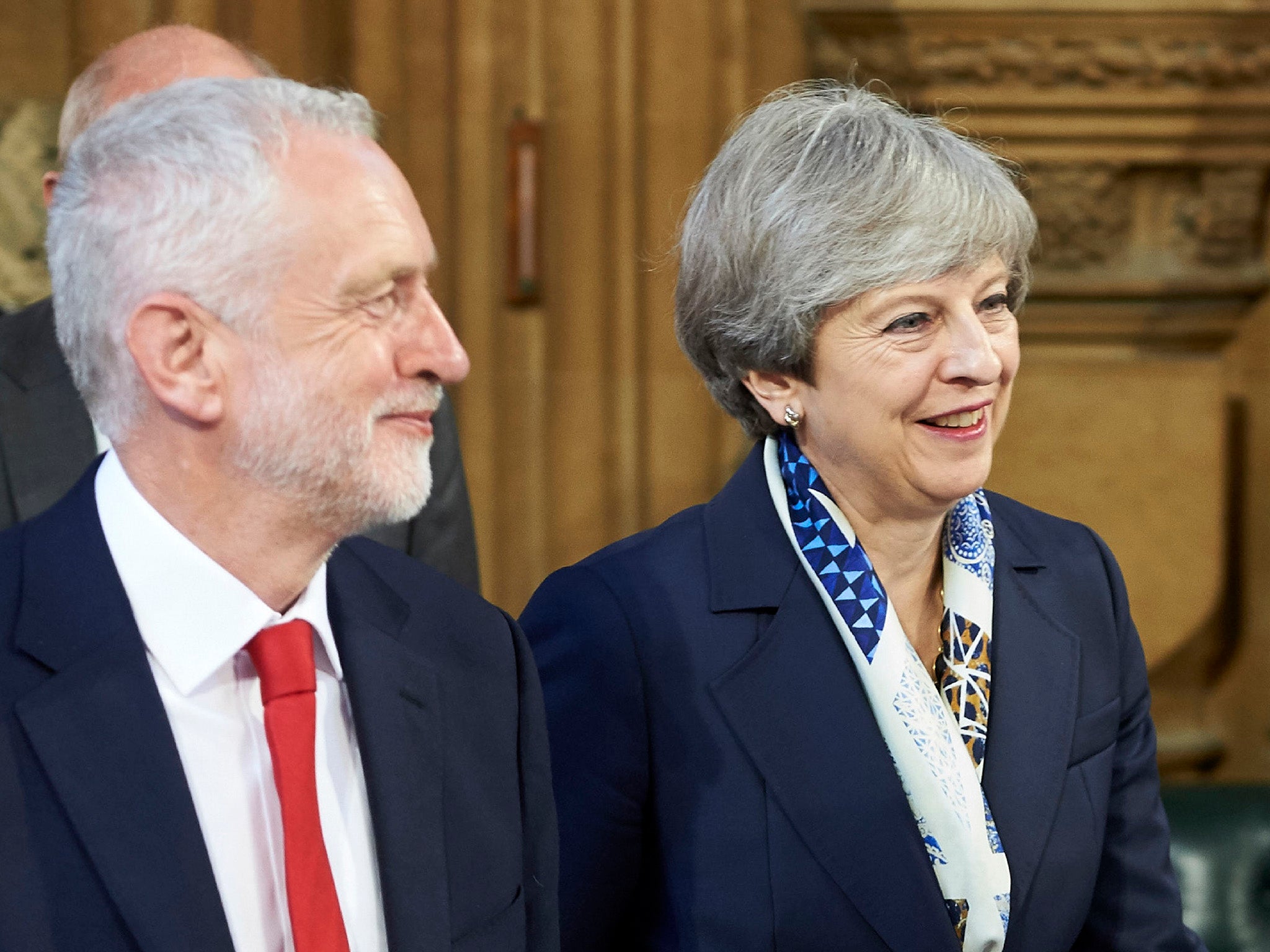We are in a time of national crisis with Brexit – this calls for a national government
Everything is in place for the creation of a national government except for one crucial element. Who would lead it?


Your support helps us to tell the story
From reproductive rights to climate change to Big Tech, The Independent is on the ground when the story is developing. Whether it's investigating the financials of Elon Musk's pro-Trump PAC or producing our latest documentary, 'The A Word', which shines a light on the American women fighting for reproductive rights, we know how important it is to parse out the facts from the messaging.
At such a critical moment in US history, we need reporters on the ground. Your donation allows us to keep sending journalists to speak to both sides of the story.
The Independent is trusted by Americans across the entire political spectrum. And unlike many other quality news outlets, we choose not to lock Americans out of our reporting and analysis with paywalls. We believe quality journalism should be available to everyone, paid for by those who can afford it.
Your support makes all the difference.Should a “national government” be formed? This would be a robust version of the Prime Minister’s invitation to the political parties to “come forward with your own views and ideas about how we can tackle” the challenges the country faces. Her proposal was immediately pooh-poohed.
The difficulty for May was that the very reasonableness of what she put forward: “We may not agree on everything but ideas can be clarified and improved and a better way forward found” – a barely concealed trap for the opposition parties. They were being asked to prop up May’s minority Government without receiving anything in return.
A national government is a coalition of the major political parties, so there is something in it for each of the participants. National governments are formed only in response to a crisis. During the Second World War, for instance, Clement Atlee, the leader of the Labour Party, was deputy prime minister to Winston Churchill. The First World War was also conducted under a national government. Most significant today, though, is the one formed in 1931 in response to the onset of the Great Depression.
The Wall Street crash of October 1929 marked the start of the crisis. Labour had won the most seats at the General Election of that year but its leader, Ramsay MacDonald, like May today, lacked an overall majority. Unemployment rose sharply. The volume of exports almost halved between 1929 and 1931. Part of the reason for this was that the value of the sterling was kept unreasonably high by its link to the price of gold, the so-called “gold standard”. The Government was trying to balance the budget – an article of faith until Keynes showed that to do so in all circumstances was futile. At the same time the costs of rising unemployment had to be financed.
But that a government is facing a particularly difficult set of challenges isn’t a sufficient reason for forming a national government. The circumstances have to be intractable. Indeed in 1931 the economic situation did continue to deteriorate. While the Labour government agreed in principle to tighten its belt further by raising taxes and cutting public expenditure more widely, an independent report raised fears that balancing the budget would be extremely difficult. Foreign investors began to withdraw their funds from London.
What happened next created the circumstances in which the formation of a national government could be contemplated. For the Cabinet could not agree what to do. The Cabinet was split 11:9 on the question whether to introduce tariffs (thus undoing the free trade principles that had guided British policy for nearly a century) or to make 20 per cent cuts in unemployment benefit (and risk civil unrest). The Government resigned expecting that it would be succeeded by a Libera-Conservative coalition.
But the Liberals didn’t want to become prisoners of the Conservatives (as they came to be in David Cameron’s coalition). The adept Conservative leader, Stanley Baldwin, also had his reservations. He didn’t want the unpopularity of harsh measures to be directed at his party. And he rated MacDonald highly, unlike Corbyn’s open scorn for May. So, for want of a better solution, MacDonald was asked to lead a National Government comprising four Labour members, four Conservatives and two Liberals. It proved a durable arrangement.
What then are the conditions today under which the formation of a national government would make sense? First there has to be a severe national crisis. That surely is a fair description of our present state in which a minority government led by a discredited Prime Minister is attempting to negotiate a Brexit deal. The second condition is that the government of the day cannot carry on. We have virtually reached that situation. All contentious items have been stripped out of the Government’s programme. The third condition would be that a conventional coalition is unavailable. That is the present situation, for neither the Conservatives nor Labour can hope to strike coalition deals with the SNP or the Lib Dems.
Everything is in place, therefore for the creation of a national government except for one crucial element. Who would lead it? Who would play the Ramsay MacDonald role? He was, after all, highly regarded by members of all parties. But nobody today can command such authority. Not May, not Corbyn. So for the time being, we shall have to blunder on as we are. The real crisis is that, for the time being at least, we don’t have politicians who can rise to the level of events as their predecessors did in the early 1930s.
Join our commenting forum
Join thought-provoking conversations, follow other Independent readers and see their replies
Comments